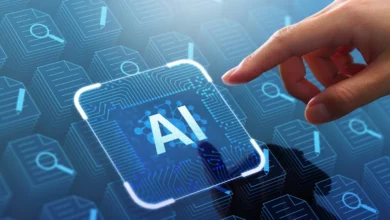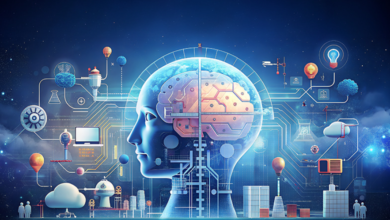The Future of Technology: Trends to Watch in the Next Decade

Technology evolves rapidly, constantly transforming our world. As we look toward the next decade, several key trends will define the future of technology, impacting industries, societies, and everyday life. Understanding these trends is crucial for individuals and organizations aiming to stay competitive and innovative.
Why Understanding Future Tech Trends Matters
The next ten years promise unprecedented technological growth. Recognizing emerging technologies allows us to adapt effectively, seize opportunities, and address challenges before they arise.
Artificial Intelligence and Machine Learning Evolution
AI will grow smarter and more versatile, impacting healthcare diagnostics, virtual assistants, autonomous systems, and personalized services. Expect AI to become more intuitive, context-aware, and seamlessly integrated into daily life.
See also: retourgagnant
Quantum Computing: The Next Computing Revolution
Quantum computers will enable solving problems beyond the reach of classical machines. Though still experimental, quantum breakthroughs will influence cryptography, materials science, and complex simulations.
5G and Beyond: Connectivity in the Next Decade
5G’s widespread adoption will revolutionize connectivity, with 6G on the horizon promising even faster speeds and ultra-reliable networks, powering IoT ecosystems, smart cities, and immersive experiences.
The Rise of Augmented Reality (AR) and Virtual Reality (VR)
AR and VR will create immersive, interactive environments for gaming, education, healthcare, and remote work, merging digital and physical realities more seamlessly than ever.
Biotechnology and Genetic Engineering Advances
Gene-editing tools like CRISPR will enable personalized medicine, disease prevention, and sustainable agriculture. Ethical governance will play a key role in guiding these powerful technologies.
Blockchain and Decentralized Finance (DeFi)
Blockchain will enhance transparency and security across sectors. DeFi platforms will disrupt traditional finance by providing decentralized lending, insurance, and asset management.
The Expansion of the Internet of Things (IoT)
IoT will connect billions of devices worldwide, enabling smarter homes, industries, and cities. Data-driven automation and predictive analytics will optimize resource use and service delivery.
Autonomous Vehicles and Smart Transportation
Self-driving cars, drones, and intelligent transit systems will improve safety, reduce emissions, and increase efficiency in transportation networks.
Green Technology and Sustainable Innovation
Technologies focusing on renewable energy, energy storage, carbon capture, and sustainable manufacturing will be vital in addressing climate change.
Space Technology and Exploration Developments
Private and governmental space missions will increase, with ambitions toward Moon bases, Mars exploration, satellite internet constellations, and space resource mining.
Cybersecurity in an Increasingly Digital World
Growing digital dependency demands advanced cybersecurity measures, including AI-powered threat detection and robust data privacy protections.
Edge Computing and Cloud Innovations
Processing data closer to the source via edge computing will complement cloud services, enabling real-time responses for IoT and autonomous applications.
Human-Machine Interfaces and Brain-Computer Interaction
Brain-computer interfaces will allow users to control devices with thoughts, improving accessibility and creating new interaction paradigms.
Robotics and Automation in Everyday Life
Robots will extend beyond industrial use to household chores, elder care, and complex tasks, reshaping labor markets and daily routines.
Smart Cities: Urban Living of the Future
Integrated smart infrastructure will enhance traffic management, energy consumption, public safety, and overall urban quality of life.
Wearable Tech and Health Monitoring Devices
Wearables will advance to provide continuous health monitoring, early disease detection, and personalized healthcare insights.
Advanced Materials and Nanotechnology
New materials and nanotech will enable lighter, stronger, and more efficient products, impacting industries from electronics to construction.
Ethical AI and Technology Governance
Ethical frameworks will be essential to manage AI biases, privacy, and accountability, ensuring technology serves society fairly.
The Role of Big Data and Predictive Analytics
Big data will enable more accurate forecasting, smarter business decisions, and customized user experiences, raising privacy considerations.
Personalized and Immersive Entertainment Technologies
Entertainment will evolve with AI-driven content personalization and interactive AR/VR experiences, changing how we consume media.
Digital Twins and Simulation Technologies
Virtual replicas of physical systems will optimize planning and maintenance in sectors like manufacturing, urban development, and healthcare.
Challenges and Risks of Future Technologies
Despite benefits, challenges include job disruption, ethical concerns, security threats, and digital divides requiring proactive policies.
Preparing for the Future: Education and Workforce Adaptation
Adapting education to focus on digital skills, creativity, and continuous learning will prepare the workforce for rapid technological changes.
Conclusion: Embracing Innovation with Caution
Technology offers incredible promise but demands responsible innovation and governance to ensure benefits are equitable and sustainable.
Frequently Asked Questions (FAQs)
Q1: What technologies will shape the next decade?
AI, quantum computing, 5G/6G, biotechnology, and green technology are among the top transformative trends.
Q2: How will AI impact daily life?
AI will enhance healthcare, education, automation, and personal assistance, making life more efficient and personalized.
Q3: What are the risks of emerging technologies?
Risks include privacy violations, job displacement, ethical issues, and increased cyber threats.
Q4: How can businesses stay ahead in future tech?
By investing in innovation, upskilling employees, and adopting flexible, tech-driven strategies.
Q5: Will technology help combat climate change?
Yes, through advancements in renewable energy, energy efficiency, and sustainable practices.






